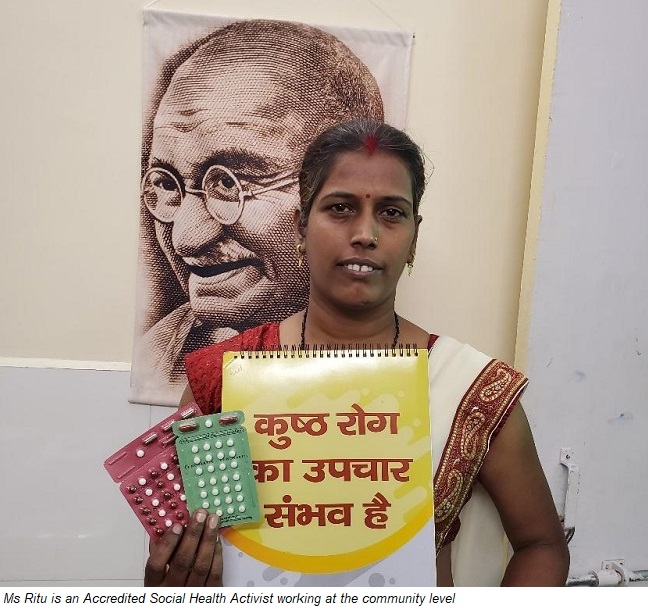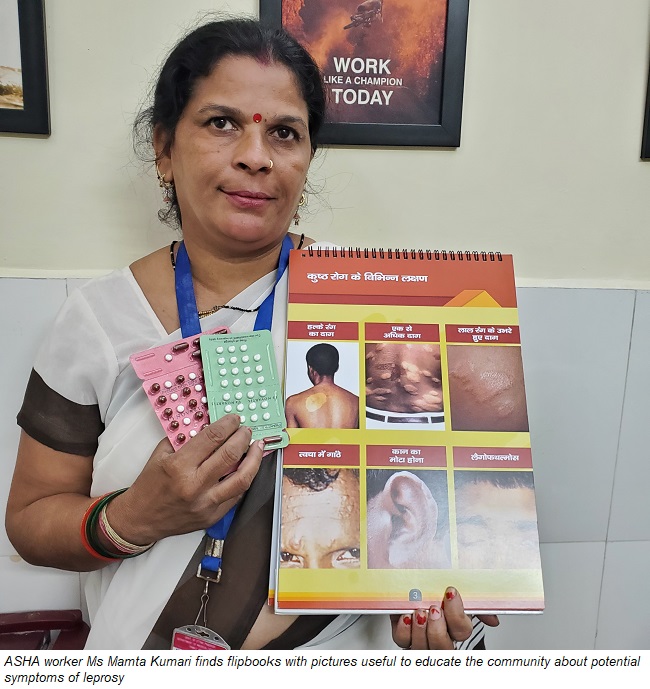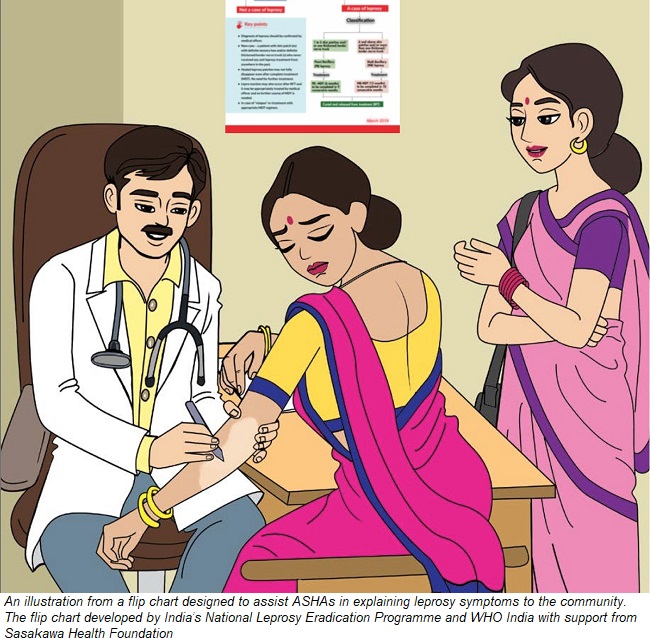Ms Ritu is an Accredited Social Health Activist (ASHA), or a community-based frontline health worker in the Nayagaon village of the Gautam Buddha Nagar district in the state of Uttar Pradesh. She has been trained to work as an interface between the community and the public health system and helps mobilise the community to facilitate access to health services available at both the primary health centre as well as the sub-centre close to the village.

Under India’s National Health Mission, every village in the country has a trained female community health worker selected from and accountable to the village where she works. Efforts to train and empower ASHAs brings rich dividends in terms of strengthening the health system at the community level.
During the pandemic, she also provided multidrug therapy (MDT) drugs to persons affected by leprosy at their doorstep, thus ensuring regular treatment. Given the many responsibilities of an ASHA, simple work aids such as flipbooks and charts make it easier for them to educate people about diseases and good health practices.

"I regularly visit the community. One of my tasks is to identify persons with signs and symptoms of diseases such as leprosy, which shows up as patches on skin with loss of sensation of touch, pain and pressure or weakness in muscles of the eyes, hands or feet, or even disabilities and visible deformities. I have a flipbook which is really useful in helping people remember and recognise the symptoms in early stages and start treatment. Information leaflets help demonstrate how persons affected by leprosy should take care of their hands, feet and eyes, and recognise complications," says Ms Mamta Kumari, another ASHA worker from the Gautam Buddha Nagar District.
Leprosy, caused by Mycobacterium leprae, can cause severe and permanent damage to the skin, nerves, limbs and eyes, if not treated early or left untreated. Early detection and treatment of leprosy helps in cutting the chain of transmission at the community level and helps prevent disabilities and deformities.

WHO’s network of Neglected Tropical Diseases (NTD) Coordinators support various National Leprosy Eradication Programme (NLEP) initiatives, including planning, surveillance, case examination and data analysis to guide programmatic activities. NTD Coordinators also support capacity building of the health workforce for conducting surveys and contact tracing. WHO, along with partners, facilitates provision of free medicines to persons affected by leprosy in India and globally.
